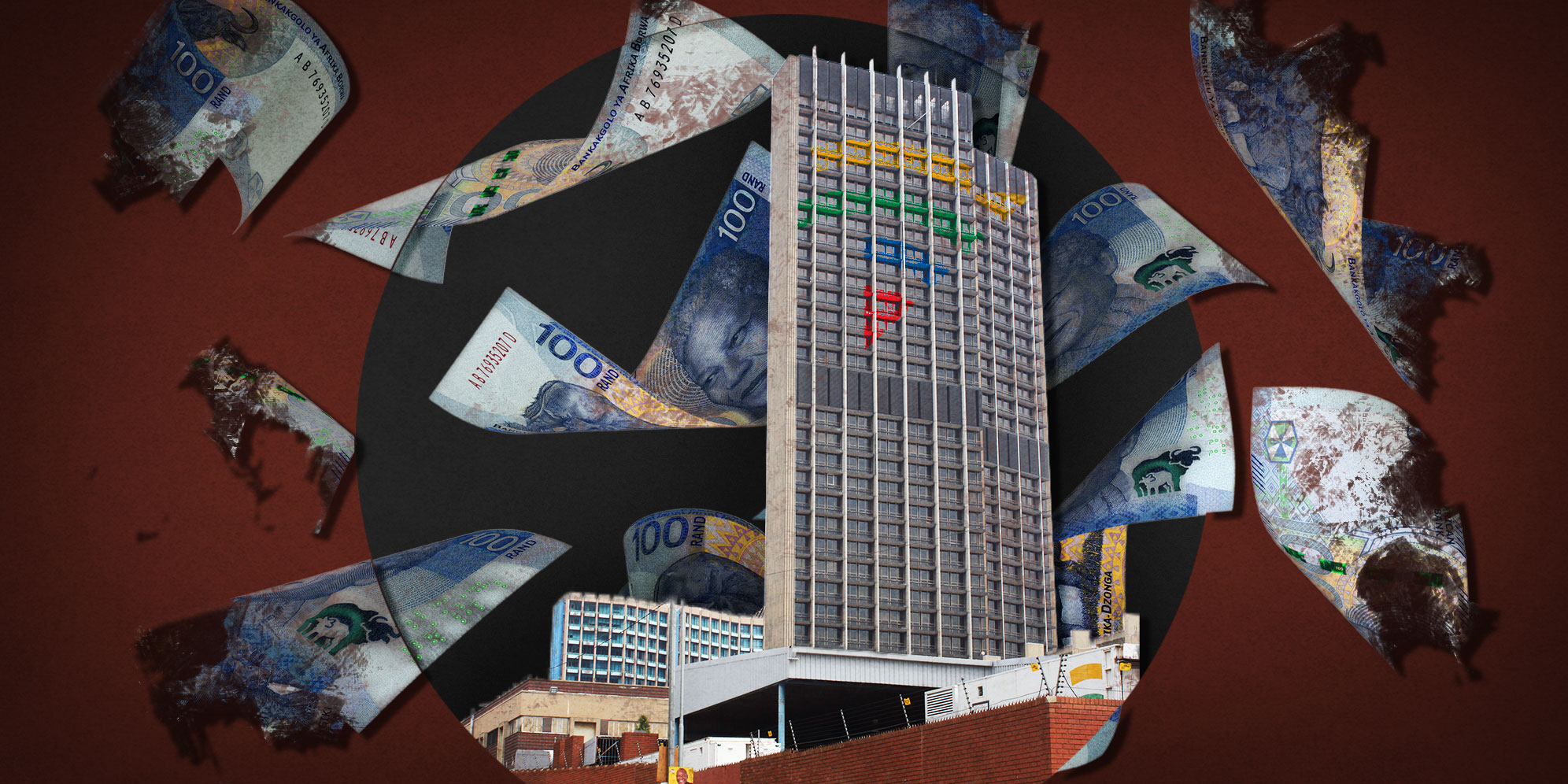The SABC is facing an epic financial crisis. Again. Before you say you don’t care because you don’t watch SABC there are a few critical issues to remember.
The SABC has an essential public mandate and remains one of the few broadcasters to produce news and programming in our African languages. It also reaches nearly half the population through radio each week.
Equally important, for democracy to succeed and thrive you need free, credible, diverse and pluralistic media. You also need a public broadcaster. In the World Press Freedom Index, the top six countries all have strong independent public broadcasters.
We are (with one or two other countries) the only African nation to have a real, albeit flawed, public broadcaster. Simply put, if we want our democracy to succeed, we all have an interest in ensuring we have a strong, credible public broadcaster.
The SABC’s coverage of the past two elections was notable for its fairness and diversity. So, whether you consume it or not, its existence is critical to our remaining a democratic state. The big question, of course, is how to fund it.
Raising the alarm
Last week the chair of the Portfolio Committee on Communications and Digital Technologies, Khusela Sangoni Diko, sounded the alarm bells about the SABC. Sangoni Diko noted that the SABC is on the brink of collapse because of outdated infrastructure, legislation, as well as an inadequate funding model.
“The SABC is on the brink of collapse. It’s burdened by unsustainable debt, outdated infrastructure and a broken funding model. When we spoke about the SABC and we said, among others, that the withdrawal of the SABC Bill is sounding a death knell on the institution, we were told we were being alarmist,” said Sangoni Diko on 8 September 2025, as quoted by EWN.
Sangoni Diko should be commended for stressing the near-catastrophic state of the SABC’s finances. One of the major issues is the amount the SABC owes to Sentech for signal distribution (heading towards R2-billion).
Sangoni Diko is right to note that the SABC may face a signal blackout by the end of the year. She will no doubt also incur the ire and disdain of the majority of previous parliamentary portfolio committee chairs and ministers who fiddled while the SABC creaked and cracked and burned.
Imagine the shame and embarrassment previous chairs and ministers must feel knowing the challenges the SABC is facing have been getting worse, and that on their watch they failed to develop and pass a new broadcast policy.
They failed to do so for more than two decades despite our current policy being 26 years old, and despite having been told repeatedly by at least three separate boards, and on countless occasions by civil society, that a new policy was needed.
Imagine the shame as they begin to appreciate the catastrophic dereliction of duty for two decades in failing to carry out research for a new funding model, despite the overwhelming evidence globally of how the world has changed.
The extinction-level event that the SABC is facing has been brewing for more than 20 years. Successive parliamentary committees and ministers cannot say they didn’t know. Indeed, we know during State Capture, the SABC was kept in a deliberate state of governance and financial crises to get it to revert to a state broadcaster.
Poor Hlaudi Motsoeneng failed, despite massive support. He was stopped in his tracks by a small band of pesky journalists who believed in the public mandate of the SABC. The group then received massive public support when they went public with the threats and intimidation.
To be shown up then by the current chair, Sangoni Diko, must be galling – and perhaps many previous chairs and ministers felt the best way forward was silence so as not to humiliate their predecessors by exposing their failures. Sangoni Diko deserves our support then for highlighting the SABC’s perilous position.
Misguided solution
Sangoni Diko is, however, deeply misinformed to suggest that the means to mitigate and prevent the collapse of the SABC is the SABC Bill. To be clear, the Bill referred to is not only outdated, out of touch and about as useful as a sieve on a sinking ship, it would without doubt make things for the SABC even worse.
Yes, really. Media Monitoring Africa and SOS wrote about just what a disaster the Bill is in 2023.
If adopted, it would have opened the door to unconstitutional interference by the minister, and, most pertinently, the Bill offered exactly nothing in the way of guidance on the SABC’s funding model other than a single line about the minister needing three years to investigate a new funding model.
It is to current minister Solly Malatsi’s absolute credit that he withdrew it. Malatsi may not have withdrawn the Bill following the correct protocol, but he had the power and absolutely did the best thing by withdrawing the abomination of a SABC Bill.
Read more: SABC Bill withdrawal crisis and South Africa’s public broadcasting future
So, the real question is: why would some choose to keep on about the imperative to pass the SABC Bill?
Occam’s razor is perhaps most apt. It “is a problem-solving principle that suggests, when faced with competing explanations for the same phenomenon, the simplest explanation is usually the best one”.
If we apply this to the SABC Bill, sadly, the simplest reason for those advocating for it is also deeply cynical and has nothing to do with saving the SABC or acting in the public interest. One of the few original sections of the SABC Bill focused on the creation of another board within the SABC (as if creating another board would solve any problem within any entity, let alone the SABC).
As we noted in 2023:
“In brief, what is envisaged is that the SABC’s public commercial services, e.g. SABC 3, Metro FM, 5FM, will be hived off into a subsidiary company with its own board of directors. And it is this entity that is expected to generate money to cross-subsidise the SABC’s public operations. It is not clear why the department thinks that creating a company will fix a model that has never worked.”
Applying Occam’s razor, the most likely explanation for seeking to implement the SABC Bill would be to create a public commercial board within the SABC – not to make a profit, but to sell off critical assets of the broadcaster.
The asset stripping would be justified by the excuse that the sales of stations would be essential to help alleviate the SABC’s debt. In reality, of course, it is simply an excuse for some to try to get rich and further denude the power and independence of the SABC.
Pretty damn cynical and evil, but also the most obvious and only reasonably plausible explanation. It would be great to have someone set out an alternative reason.
Against the odds
The good news (yes, there is good news) is that despite the odds, SABC staff are keeping the lights on and keeping the news and information flowing in all official languages. They may frequently have no water, no power, no working escalators or lifts, using outdated equipment and constantly subjected to efforts of political interference across the board, but they will keep going.
In addition, without needing an SABC Bill, Malatsi has just awarded a research tender to urgently investigate and develop a funding model for the SABC. Also, despite being in its third iteration, and widely expanded, there is movement on an updated policy, and rumours abound that there will be an SABC Bill that speaks to 2030 not 1980.
In the interim we need a few things to happen. With elections just over a year away it’s imperative we have a stable SABC. The government will have to find the money to pay Sentech and the SABC so it can keep operating.
Civil society will need to keep applying pressure to the minister and Parliament to act urgently and in the public interest and develop a SABC Bill that is fit for purpose and in the public interest and will ensure the stability of the SABC.
Those doing the research must work like the wind to develop a model suitable for a public broadcaster’s needs in a digital environment.
Our SABC and democracy depend on it. DM
William Bird is the director of Media Monitoring Africa (MMA).





 Illustrative Image: A general view of the South African Broadcasting Corporation (SABC) Head Office in JHB on April 10, 2019 Auckland Park, Johannesburg (Photo by Gallo Images/ Fani Mahuntsi) | Money (Image: Istock) | SABC logo (Wiki images)
Illustrative Image: A general view of the South African Broadcasting Corporation (SABC) Head Office in JHB on April 10, 2019 Auckland Park, Johannesburg (Photo by Gallo Images/ Fani Mahuntsi) | Money (Image: Istock) | SABC logo (Wiki images)